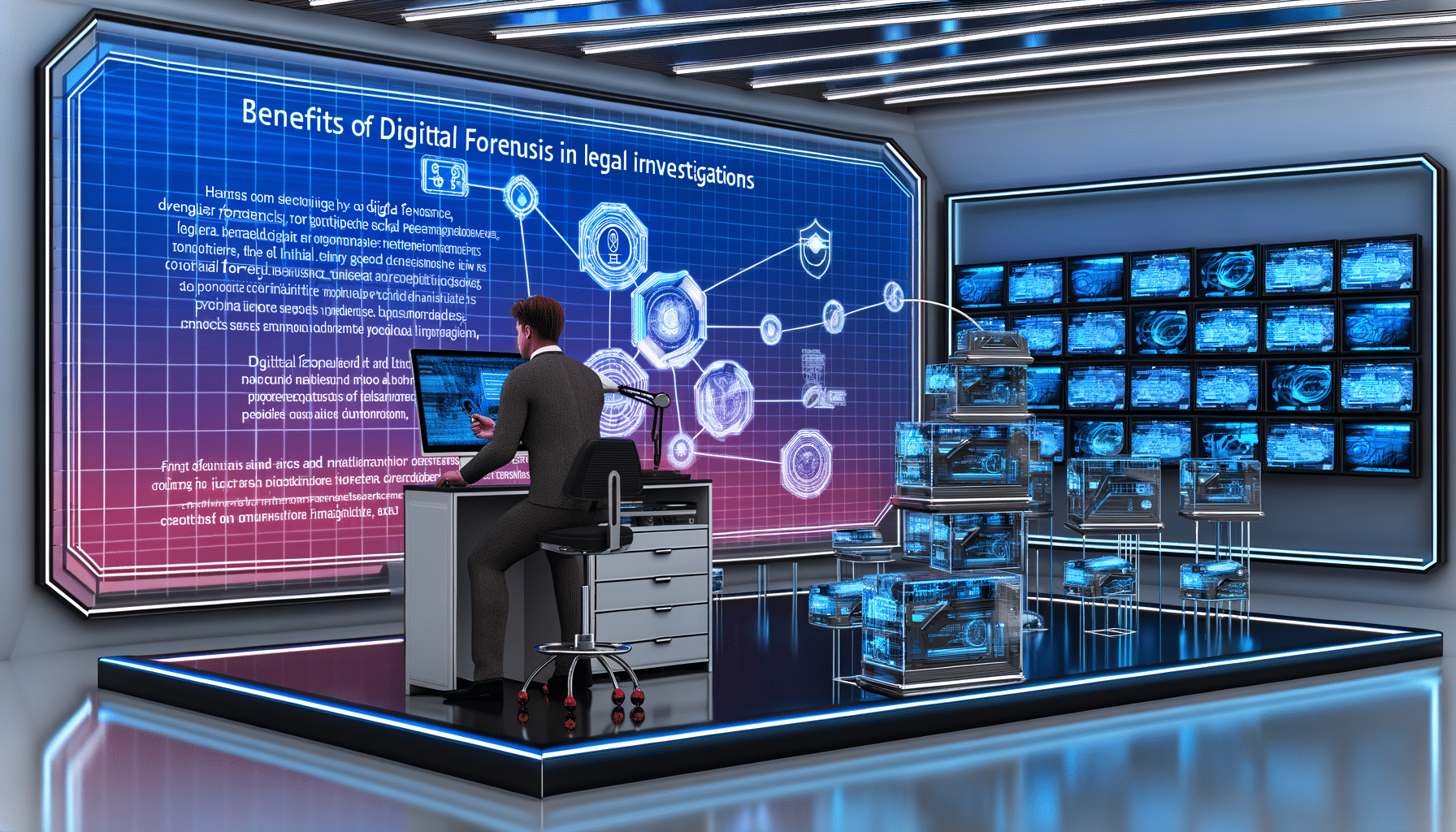- Investigation Tools
- October 6, 2024
The Benefits of Digital Forensics in Legal Investigations

In the realm of legal investigations, gathering evidence is a cornerstone of the process. With the ever-increasing digital footprint left by individuals and entities, the field of digital forensics has emerged as an invaluable asset. As the founder of RecordsKeeper.AI, I’ve witnessed firsthand how digital forensics empowers investigators by uncovering critical evidence, ensuring that justice is served efficiently and effectively.
The Role of Digital Forensics in Legal Investigations
Digital forensics plays a multifaceted role in the legal landscape. It involves identifying, acquiring, processing, analyzing, and reporting on digital data in a way that is legally admissible. Through digital forensics, investigators can retrieve critical insights from various digital mediums such as computers, smartphones, networks, and even cloud services. This capability is vital for legal investigations, enabling the reconstruction of events, validation of allegations, and the uncovering of the truth.
Uncovering Hidden Truths
The primary benefit of digital forensics lies in its ability to uncover hidden details. Whether it’s recovering deleted files, tracing digital transactions, or analyzing communication patterns, digital forensics provides a treasure trove of information. Being able to piece together this digital puzzle can reveal the intentions and actions of parties involved, offering undeniable evidence that might otherwise be missed.
Ensuring Data Integrity
One of the key challenges in any investigation is ensuring the integrity of the evidence. Digital forensics methodologies include robust techniques to collect and preserve data in its original state. This is where our approach at RecordsKeeper.AI converges; our blockchain integration guarantees the immutability and authenticity of records. Similar to digital forensics, we use cutting-edge technology to uphold the sanctity of evidence.
Accelerating the Investigation Process
Time is often of the essence in legal investigations. Digital forensics expedites the retrieval and analysis of data, enabling investigators to act quickly. This efficiency can be crucial, especially in cases where immediate action is required to prevent further damage or loss. Automated tools and AI-powered analysis play a significant role here, diminishing the need for manual data trawling and allowing legal teams to focus on strategy and outcome.
Ensuring Legal Compliance
In modern legal investigations, adherence to regulatory standards is a non-negotiable parameter. Digital forensics aligns with compliance requirements by documenting every step meticulously. Our compliance management features at RecordsKeeper.AI complement this requirement, automating regulatory workflows and ensuring that our clients remain aligned with standards like GDPR and HIPAA. These systems ensure that both the process and the evidence withstand legal scrutiny.
Implementing Digital Forensics—A Strategic Decision
Adopting digital forensics is not merely a technical choice; it is a strategic decision that can reshape the efficiency and success of investigations. Within meticulously regulated industries such as finance, health, and legal services, more organizations are realizing the benefits of integrating digital forensic techniques into their investigative processes.
Simplifying Complexity with Automated Solutions
A prevailing misconception is that digital forensics is only for complex criminal cases. However, its use extends to corporate investigations, data breaches, intellectual property theft, and more. At RecordsKeeper.AI, we’ve simplified the adoption of such tools. Utilizing AI and automation, we offer solutions that enable rapid categorization and retrieval of digital evidence, making record management less of a chore and more of a strategic advantage.
Mitigating Risks and Enhancing Security
The landscape of digital forensics is continuously evolving as threats and technologies advance. Through updating and implementing robust security measures, businesses can safeguard their digital assets and sensitive information. Secure data rooms and real-time activity tracking are vital for controlling access to sensitive documents, and this is where our expertise at RecordsKeeper.AI shines through.
Conclusion—The Future is Digital
I firmly believe that the future of legal investigations lies in harnessing the full potential of digital forensics. The ability to swiftly uncover and preserve digital evidence addresses many of the inefficiencies present in traditional investigation methods. By leveraging tools designed to simplify and secure data handling, we can continue to focus on our ultimate goal—delivering justice.
For legal, finance, and compliance heads looking to navigate the digital landscape with confidence, integrating digital forensics is a leap towards modernizing investigations. To explore more innovative solutions in record management and how they align with these investigative tools, I invite you to follow my journey with RecordsKeeper.AI. Together, we can lay the foundation for safer, more efficient, and compliant legal processes.
Toshendra Sharma is the visionary founder and CEO of RecordsKeeper.AI, spearheading the fusion of AI and blockchain to redefine enterprise record management. With a groundbreaking approach to solving complex business challenges, Toshendra combines deep expertise in blockchain and artificial intelligence with an acute understanding of enterprise compliance and security needs.
Archives
- January 2025
- December 2024
- November 2024
- October 2024
- September 2024
- August 2024
- July 2024
- June 2024
- May 2024
- April 2024
- March 2024
- February 2024
- January 2024
- December 2023
- November 2023
- October 2023
- September 2023
- August 2023
- July 2023
- June 2023
- May 2023
- April 2023
- March 2023
- February 2023
- January 2023
- December 2022
- November 2022
- October 2022
- September 2022
Want to get more content like this?
Signup to directly get this type of content to your inbox!!
Latest Post
Document Control for Equipment Maintenance
- January 20, 2025
Managing Records for Multiple Clients
- January 19, 2025
Handling Conference Documentation
- January 18, 2025
Setting Up Department Record Reviews
- January 17, 2025





